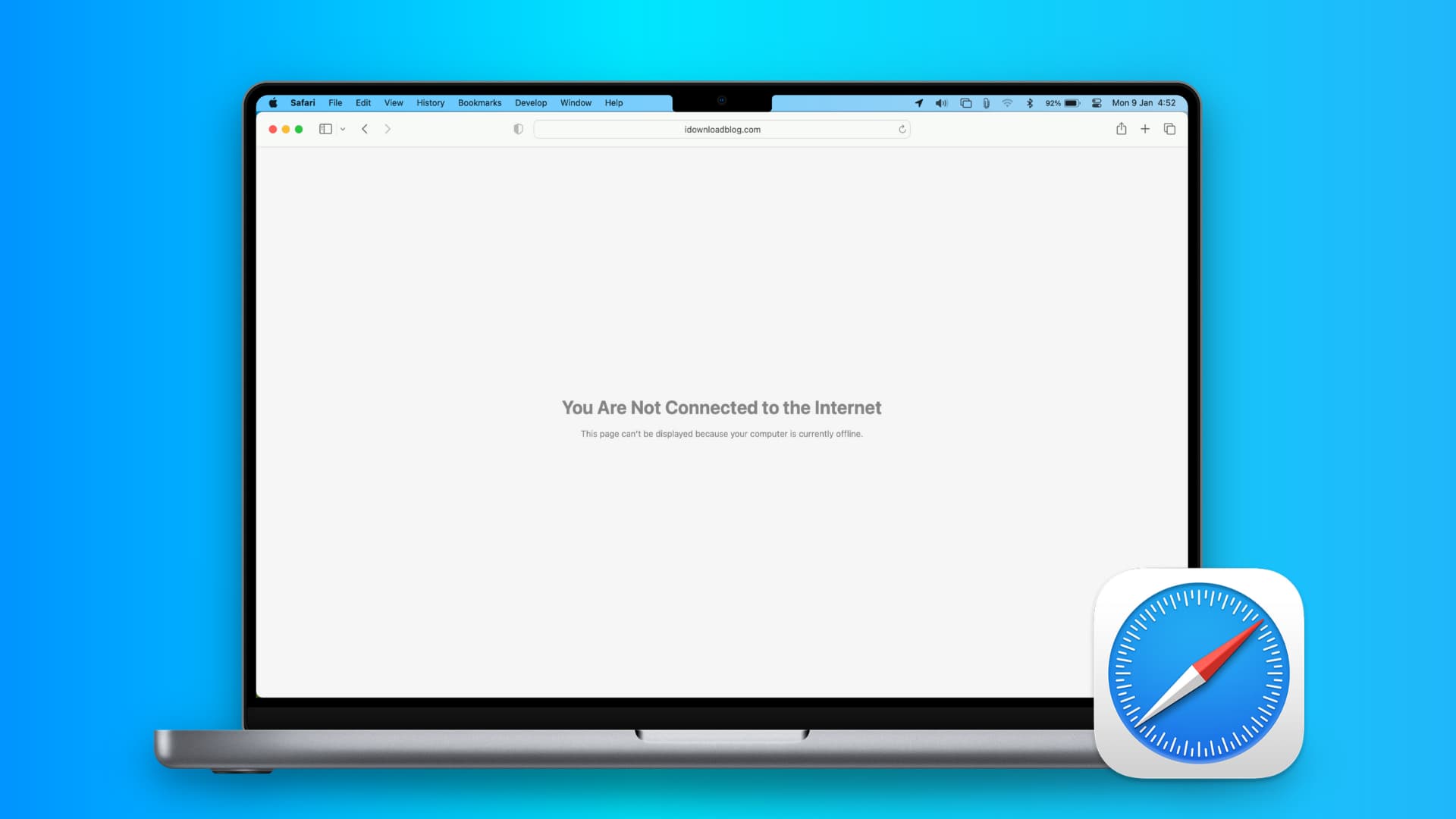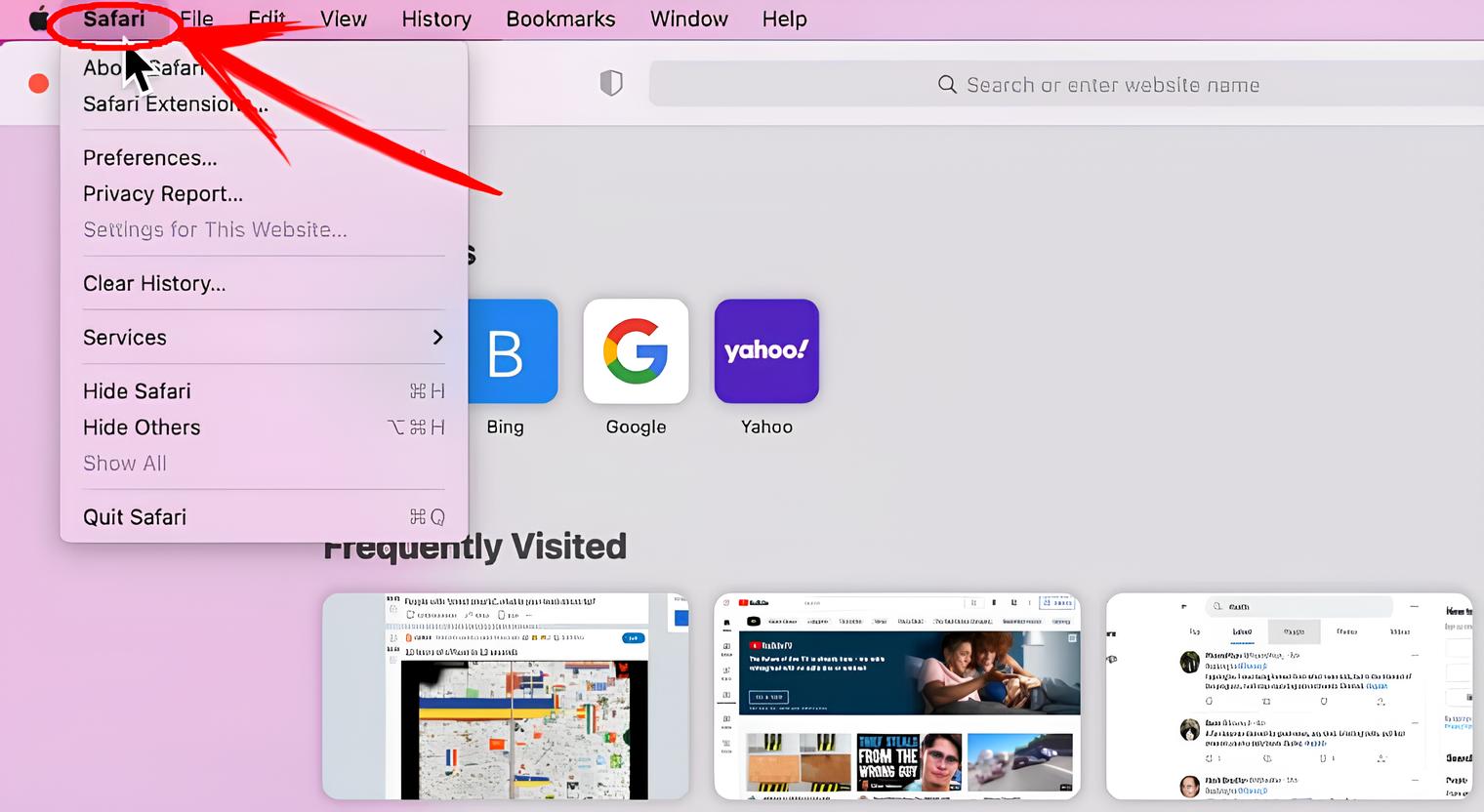Introduction
Welcome to the world of web browsing, where cookies play a significant role in shaping your online experience. As you navigate the vast digital landscape, you leave behind a trail of digital breadcrumbs in the form of cookies. These tiny pieces of data are stored on your device by websites you visit and can carry a wealth of information, ranging from your preferences and login credentials to tracking data.
In this article, we will delve into the realm of cookies and explore how you can take control of your online privacy by blocking all cookies in Safari. By understanding the inner workings of cookies and the reasons behind blocking them, you can empower yourself to make informed decisions about your online privacy and security.
So, grab your virtual magnifying glass as we embark on a journey to uncover the mysteries of cookies and learn how to wield the power to block them in Safari. Whether you're a privacy-conscious individual or simply seeking to enhance your browsing experience, this guide will equip you with the knowledge and tools to navigate the digital realm with confidence and peace of mind.
Understanding Cookies
Cookies, in the context of web browsing, are small pieces of data that websites store on your device. These data files serve various purposes, such as remembering your login credentials, tracking your browsing behavior, and personalizing your online experience. When you visit a website, it may send a cookie to your browser, which is then stored on your device. This allows the website to recognize you upon subsequent visits, enabling features like personalized recommendations and retaining items in your shopping cart.
There are different types of cookies, each serving specific functions. Session cookies, for instance, are temporary and are deleted once you close your browser. They are used to maintain your session as you navigate a website, ensuring a seamless browsing experience. Persistent cookies, on the other hand, remain on your device for a specified duration, even after you close your browser. These cookies can store information such as login credentials and language preferences, making it convenient for you to access websites without having to re-enter certain details.
While cookies can enhance your browsing experience by customizing content and streamlining interactions, they also raise concerns regarding privacy and security. Third-party cookies, in particular, are often used for tracking purposes by advertisers and other entities. These cookies can follow your online activities across different websites, creating a detailed profile of your browsing behavior. This data is then utilized to deliver targeted advertisements and gather insights about consumer preferences.
It's important to note that not all cookies are inherently malicious. First-party cookies, which are set by the website you are directly interacting with, are generally considered less invasive compared to third-party cookies. They are primarily used to remember your preferences and settings, contributing to a more personalized and user-friendly browsing experience.
Understanding the role of cookies is crucial in making informed decisions about your online privacy. By gaining insights into how cookies operate and their potential impact on your digital footprint, you can take proactive steps to manage and control the data that websites collect about you. This knowledge forms the foundation for exploring methods to block cookies in Safari, empowering you to safeguard your privacy while navigating the vast expanse of the internet.
Why Block Cookies in Safari
In the digital age, where online privacy and data security are paramount concerns, the decision to block cookies in Safari holds significant relevance. While cookies serve various legitimate purposes, including enhancing user experience and enabling personalized content delivery, they also raise valid concerns related to privacy, security, and user autonomy.
Safeguarding Privacy
By blocking cookies in Safari, users can exert greater control over the information collected about their online activities. Third-party cookies, in particular, are often utilized for tracking purposes, enabling advertisers and other entities to monitor users' browsing behavior across different websites. This practice raises privacy concerns, as it can lead to the creation of detailed profiles that encompass users' preferences, interests, and online interactions. Blocking cookies in Safari empowers individuals to mitigate the risk of their personal data being extensively tracked and utilized for targeted advertising or other purposes without their explicit consent.
Enhancing Security
In addition to privacy considerations, blocking cookies in Safari can contribute to bolstering the security of users' browsing sessions. While cookies themselves are not inherently malicious, they can be exploited as vectors for unauthorized access and information leakage. For instance, certain types of cookies, if compromised, can potentially expose sensitive information such as login credentials and session tokens. By blocking cookies, users can reduce the likelihood of such data being accessed or intercepted by unauthorized parties, thereby fortifying the security of their online interactions.
Preserving User Autonomy
The ability to block cookies in Safari aligns with the principle of user autonomy and choice. It empowers individuals to dictate the extent to which their online activities are tracked and monitored by external entities. By exercising control over the data collection process, users can navigate the digital landscape with a heightened sense of agency, ensuring that their online interactions are not unduly influenced by pervasive tracking mechanisms. This preservation of user autonomy underscores the importance of empowering individuals to make informed decisions about their digital footprint and the utilization of their personal data.
Mitigating Cross-Site Tracking
Cross-site tracking, facilitated by third-party cookies, has been a subject of increasing scrutiny due to its implications for user privacy and data protection. By blocking cookies in Safari, users can mitigate the impact of cross-site tracking, reducing the ability of external entities to compile comprehensive profiles of their online behavior across diverse websites. This proactive measure serves to limit the aggregation of user data for targeted advertising and other purposes, fostering a more privacy-respecting online environment.
In essence, the decision to block cookies in Safari is rooted in the fundamental principles of privacy, security, user autonomy, and mitigating cross-site tracking. By understanding the implications of cookies and the associated privacy considerations, individuals can make informed choices to align their online experiences with their preferences and values. This proactive approach underscores the significance of empowering users to shape their digital interactions in a manner that prioritizes privacy, security, and individual agency.
How to Block All Cookies in Safari
Safari offers a straightforward and effective method to block all cookies, providing users with the means to exert greater control over their online privacy and browsing experience. By implementing the following steps, you can proactively manage the cookies that websites attempt to store on your device, thereby enhancing your digital privacy and security.
Step 1: Access Safari Preferences
To initiate the process of blocking all cookies in Safari, begin by launching the Safari browser on your Mac or iOS device. Once the browser is open, navigate to the "Safari" menu located in the top-left corner of the screen. From the dropdown menu, select "Preferences" to access the settings and customization options for Safari.
Step 2: Navigate to Privacy Settings
Within the Safari Preferences window, click on the "Privacy" tab, which houses a range of privacy-related settings and controls. This section allows users to manage website tracking, cookie storage, and other privacy-enhancing features.
Step 3: Enable "Block All Cookies"
In the Privacy tab, you will find the option to "Block all cookies." By checking this box, you instruct Safari to prevent all websites from storing cookies on your device. This proactive measure effectively blocks both first-party and third-party cookies, offering a comprehensive approach to managing data collection and tracking mechanisms.
Step 4: Customize Cookie Settings (Optional)
For users who may require more granular control over cookie management, Safari provides the option to customize cookie settings for individual websites. By clicking on the "Manage Website Data" button within the Privacy tab, you can view and modify the cookie permissions for specific websites, allowing for tailored control over cookie storage based on your preferences.
Step 5: Confirm and Apply Changes
Once you have adjusted the cookie settings to align with your preferences, click the "Close" button to confirm and apply the changes. Safari will now enforce the selected cookie blocking settings, providing you with enhanced privacy and control over the data that websites can store on your device.
By following these steps, you can effectively block all cookies in Safari, empowering yourself to navigate the digital landscape with heightened privacy and security. This proactive approach aligns with the principles of user autonomy and data protection, enabling individuals to shape their online experiences in a manner that reflects their preferences and values. With the ability to control cookie storage and tracking mechanisms, users can assert greater influence over their digital footprint, fostering a more privacy-respecting online environment.
Conclusion
In the ever-evolving digital ecosystem, where privacy concerns and data security are at the forefront of online interactions, the ability to block all cookies in Safari emerges as a pivotal tool for users seeking to safeguard their personal information and browsing experiences. By gaining a comprehensive understanding of cookies and their implications, individuals can make informed decisions about managing their digital footprint, aligning their online activities with their privacy preferences and security considerations.
The decision to block cookies in Safari transcends mere technical adjustments; it embodies a proactive stance in asserting control over the data collected during online interactions. Through the simple yet impactful process of blocking all cookies, users can fortify their digital privacy, mitigate the risks associated with cross-site tracking, and preserve their autonomy in the digital realm. This deliberate action empowers individuals to curate their online experiences in a manner that reflects their values and preferences, fostering a more privacy-respecting and secure browsing environment.
By embracing the capability to block all cookies in Safari, users can navigate the digital landscape with a heightened sense of agency, knowing that their online activities are shielded from pervasive tracking mechanisms and unauthorized data collection. This proactive measure aligns with the fundamental principles of privacy, security, and user autonomy, enabling individuals to shape their digital interactions in a manner that prioritizes their personal preferences and values.
As the digital landscape continues to evolve, the significance of empowering users to make informed choices about their online privacy and security cannot be overstated. The ability to block all cookies in Safari represents a tangible manifestation of this empowerment, offering users a practical means to assert control over the data collected during their online journeys. This proactive approach underscores the pivotal role of user agency in shaping the digital landscape, fostering an environment where privacy, security, and individual autonomy are upheld as paramount considerations.
In essence, the journey to block all cookies in Safari transcends technical configurations; it embodies a proactive stance in safeguarding online privacy and security. By embracing this capability, users can navigate the digital realm with confidence, knowing that they hold the reins to their digital footprint and can shape their online experiences in alignment with their values and preferences. This proactive approach underscores the pivotal role of user agency in shaping the digital landscape, fostering an environment where privacy, security, and individual autonomy are upheld as paramount considerations.

























